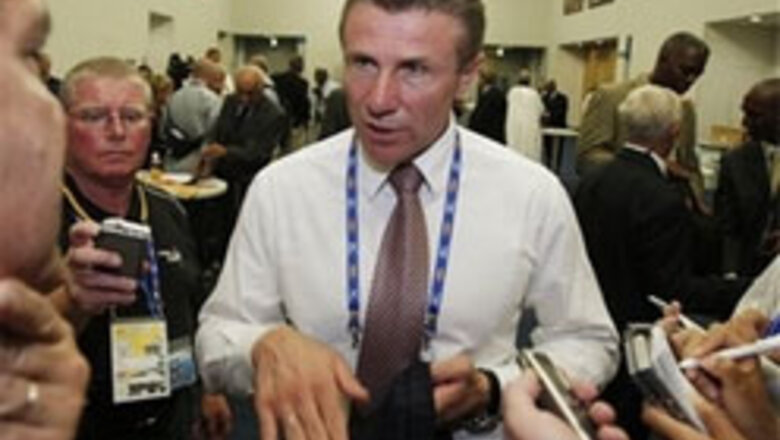
views
Osaka (Japan): The International Association of Athletics Federation (IAAF) on Thursday called on the World Anti-Doping Agency (WADA) to impose tougher sanctions for drug offenders, including four-year bans for serious first-time infractions.
WADA will review its doping code in November but is unlikely to change its current sanction benchmark of two years.
"We remain convinced that strong penalties are an important cornerstone of an effective anti-doping campaign," the IAAF Congress said in a statement, calling for a doubling of the present sanction.
IAAF secretary general Pierre Weiss has said that the move to four years would stand no chance at the November 15-17 conference and that athletics had no plans for a go-it-alone policy.
Sports like cycling and football were already loath to accept a two-year benchmark, which was instituted in 2004.
Any change to tougher sanctions is expected to meet with opposition, including arguments that such penalties will not stand up in civil courts.
The IAAF held its rule-making Congress ahead of the August 25-September 2 world championships.
While doping scandals have centered on cycling and baseball over the past few months, athletics has suffered too.
Justin Gatlin, the double-gold sprint star of the last world championships in Helsinki, Finland, two years ago, is not in Japan.
Gatlin, also the 100-meter gold medalist at the Athens Olympics, tested positive for testosterone and steroids in April 2006 and is fighting charges that could see him suspended for eight years.
Russian world record holder Tatyana Lysenko and a fellow hammer thrower tested positive for doping in out-of-competition tests on May 9, and Russia's team coach was suspended in the scandal.
Slovenia's Jolanda Ceplak, the 800-meter indoor world record holder, has been suspended after testing positive for the blood-booster EPO.
The IAAF promised to carry out the sport's most rigorous anti-doping program to date with more than 1,000 tests during the championships.




















Comments
0 comment